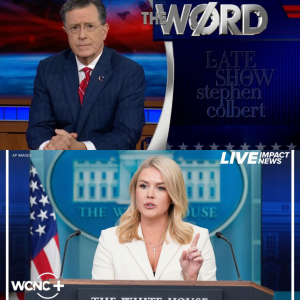The 2026 political season has been simmering for months with the high-profile race for U.S. Senate on the front burner.
The contest for Texas attorney general is also hotly contested and there are critical congressional races taking shape across the state.
While primary contests for both parties have been cooking for much of the summer, the table isn’t fully set.
Expect some dramatic twists and turns from now until the month-long filing period ends Dec. 8.
By signing up, you agree to our Terms of Service and Privacy Policy.
The answer to three questions will potentially spice up the season.
Will U.S. Rep. Wesley Hunt join the GOP Senate race?
Longtime Republican Sen. John Cornyn has been slugging it out for several years with his primary challenger, Attorney General Ken Paxton.
Paxton led in most polls until mid-summer, when Cornyn closed the gap amid a blistering traditional and social media campaign aimed at portraying Paxton as unfit for office.
Many analysts are waiting to see what happens in the contest when Paxton spends more money communicating with voters.
A bigger question, perhaps, is what happens if Wesley Hunt gets into the race.
The Real Clear Politics average of Senate primary polls has Paxton at 36.7%, Cornyn at 32.7% and Hunt at 19%.

The Republican congressman from Houston and his allies have mounted a targeted media campaign to raise his profile outside of his congressional district. You may have seen some of his ads before college or professional football games.
Hunt has an opportunity to be an alternative to Cornyn and Paxton, who both have to overcome some negatives to win. A field with three major candidates would likely put the race in a runoff.
“Hunt’s entry into the race would shake it up and result in there not being a clear path for either Paxton or Cornyn,” said Republican consultant Matthew Langston. “A three-way race dramatically changes the mindset of voters and how they will engage in the race.”
Will big-name Democrats round out a statewide slate?
I wrote about a May 31 meeting between former U.S. Rep. Beto O’Rourke of El Paso, former U.S. Rep. Colin Allred of Dallas, U.S. Rep. Joaquin Castro of San Antonio and state Rep. James Talarico of Austin. Their goal was to hash out a statewide slate of candidates to energize Democrats.
The problem: everyone on the video chat wanted to run for Senate.
Right now the Democratic primary for the Senate seat held by Cornyn includes Allred, Talarico and former NASA astronaut Terry Virts. Allred, the 2024 Senate nominee against Republican Ted Cruz, has been running in the March primary since July 1. Talarico launched his campaign earlier this month.
It’s unclear what roles O’Rourke and Castro will have in 2026.

Castro has told me that along with the Senate, he would consider campaigns for attorney general or even lieutenant governor. O’Rourke wasn’t that specific, though it seemed obvious he preferred a Senate run. He also doesn’t see the logic of having all the formidable contenders in one primary race.
If O’Rourke doesn’t run statewide, that removes from the ballot a candidate with the potential to raise $100 million and connections all over the state, though he would help candidates through his political group Powered By People.
Another brewing situation involves U.S. Rep. Jasmine Crockett. The Dallas Democrat is considering whether to run for another term in Congress.
Crockett is also thinking about running for statewide office, with a Senate bid the most likely choice. She told me she won’t run for Senate unless data shows she could win a general election. A Texas Democrat hasn’t won a statewide race since 1994.

As it stands now, the Democrat slate is Houston businessman Andrew White for governor, state Rep. Vikki Goodwin of Austin for lieutenant governor, either state Sen. Nathan Johnson of Dallas or former Galveston Mayor Joe Jaworski for attorney general and the winner of the Allred-Talarico showdown for Senate.
There will be other names added to the mix up as we speed toward the Nov. 8 opening of the candidate filing period.
“We need good candidates,” said state Rep. Rafael Anchía, D-Dallas, adding he was pleased with some of the candidates who have stepped up to run statewide. “That’s the recipe for success. You need strong people that will seize upon the excitement and bring new people into the election cycle.”

Will the new congressional boundaries survive legal challenges?
A hearing on the legality of the new congressional boundaries signed into law by Gov. Greg Abbott begins Wednesday in El Paso.
The plaintiffs argue that the GOP-drawn boundaries violate the Voting Rights Act, while Republicans contend they are political but legal.
If the maps are upheld or the process isn’t resolved before the filing deadline, Democrats would be at risk of losing up to five seats, though the congressional contests in the Rio Grande Valley seem too close to call.
Democrats are likely to lose a North Texas seat under the new boundaries. District 32, a former Democratic stronghold, was revamped to stretch into the Republican environs of East Texas. That means Democratic Reps. Marc Veasey, Julie Johnson and Crockett will have to figure out where to run, with one of them not returning to Congress. Crockett would likely win in any Democratic district she chose.

The revised District 32 is an opportunity for a new Republican member of Congress. There are already at least seven contenders in the race, and supporters are trying to convince state Rep. Katrina Pierson, R-Rockwall, to mount a primary campaign. Pierson told me that she hasn’t ruled out a congressional campaign.

If the federal panel in El Paso issues an injunction blocking the maps, congressional candidates would either run in the existing districts or within temporary lines drawn by the court






